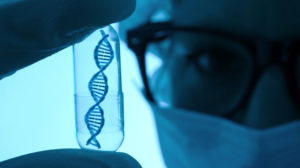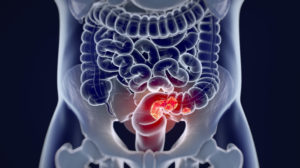Crash diets often claim dramatic weight loss and improved health. But at what cost? The Keto diet has been praised for its potential to help people lose weight, increase their mental clarity, decrease cravings, improves skin texture, and enhanced energy.
However, there are some adverse consequences of the keto diet that you should be aware of. This renowned weight loss plan encourages individuals to eat high-fat meals such as cheese, nuts, avocado, bacon, and butter. Carbohydrates, on the other hand, are highly restricted even when they are derived from healthy sources like vegetables, fruits, and whole grains.
The ketogenic diet assists in the breakdown of fats for fuel at a higher rate. It not only helps people who want to lose weight but also those who need to increase their testosterone levels. Recent studies on mice have even found a positive connection between the keto diet and a longer lifespan!
It is better to seek advice from a dietician before making lifestyle modifications like a ketogenic diet. Whether you’re aiming to slow your biological rate of aging, augment your testosterone replacement therapy or you just want to flip your life upside down, it’s good to understand what the current science says about possible risks.
Flu-like symptoms
According to research, around 25% of the people who go on a keto diet most commonly experience flu-like symptoms. The Keto diet lets the body consume its carb reserves and converts them to utilize ketones and fat for fuel. Therefore, you might experience flu. The most common symptoms include dizziness, nausea, constipation, and headaches caused by electrolyte imbalances and dehydration. For a few days, that adjustment alone is enough to make your body fatigued.
However, you may reduce these symptoms of the keto diet by drinking sufficient water and getting enough sleep. Also, to combat fatigue, try consuming natural energy sources such as organic coffee, green tea, or adaptogenic herbs.
Digestive Problems
It might be challenging to achieve your daily fiber requirement on the keto diet because it restricts carbohydrates. The richest fiber sources, including beans, whole grains, starchy vegetables, and fruits, are excluded from the diet as they contain too many carbs. Thus, the ketogenic diet might cause intestinal pain and constipation. Fiber also helps to nurture good bacteria in your gut. A healthy stomach can aid with inflammation reduction, mental health, and immunity. A study revealed that a low-carb diet with a limited amount of fiber might negatively impact your gut microbes.
Reduce sugar levels
Low-carb diets, such as keto, have been observed to assists diabetics in regulating blood sugar levels. Some research indicates that the keto diet may help lower hemoglobin A1c levels.
People with type 1 diabetes, on the other hand, might be at a higher risk of hypoglycemia (low blood sugar), and they present with symptoms like fatigue, confusion, shakiness, and weakness. Lower levels are typical in people with type 1 diabetes who take too much insulin and don’t eat enough carbohydrates.

Nutritional Deficiencies
Since the ketogenic diet restricts low-carb, nutrient-dense foods, it may not deliver adequate vitamins and minerals. Possible deficiencies might include vitamin K, vitamin A, vitamin B, vitamin C, calcium, phosphorus, and magnesium. Remember that these vitamins aid in a variety of bodily processes and functions. For example, they assist in forming red blood cells, provide energy, tissue healing, and strengthen the immune system. Therefore, one cannot afford to avoid them. Eating whole-natural foods is the ultimate way to prevent vitamin deficits. You should obtain everything you need by consuming high nutrient foods such as broccoli, cauliflower, avocado, walnuts, raspberries, strawberries, almonds, salmon, spinach.
You can always consider taking vitamin supplements.
Higher Risk of Heart disease
The ketogenic diet can promote risk factors associated with heart disease. It has no restrictions on saturated or trans fats; these fats should be avoided at all costs. These lipids raise your bad cholesterol (LDL) while decreasing HDL. As per the American Heart Association, such lipids also increases the risk of heart diseases and stroke. Trans fat is so unhealthy that the Food and Drug Administration has recently prohibited food manufacturers from adding the major source of artificial trans fat to foods and beverages.
Thus, before starting the keto diet, you should consult your doctor to see if you have high cholesterol or other heart disease risk factors.
Sleep Disturbances
Any sudden and drastic change in diet can change your sleep quality. Keto is no exception. So far the studies linking a ketogenic diet and sleep habits have shown mixed results. Some find the ketogentic diet creates a more restless sleep, while others showed more stage 4 deep sleep, which promotes restoration and reduction of inflammation.
We are all aware of how sleep deprivation affects energy, attention, and productivity. Inadequate sleep is not only insufficient for your health but also influences your mood, ability to retain knowledge, and judgment. Lack of sleep can also prevent weight loss and increase stress.
So, if you start the keto diet, make sure to keep an eye on your sleep habits – both in the amount of time and quality of your sleep.





